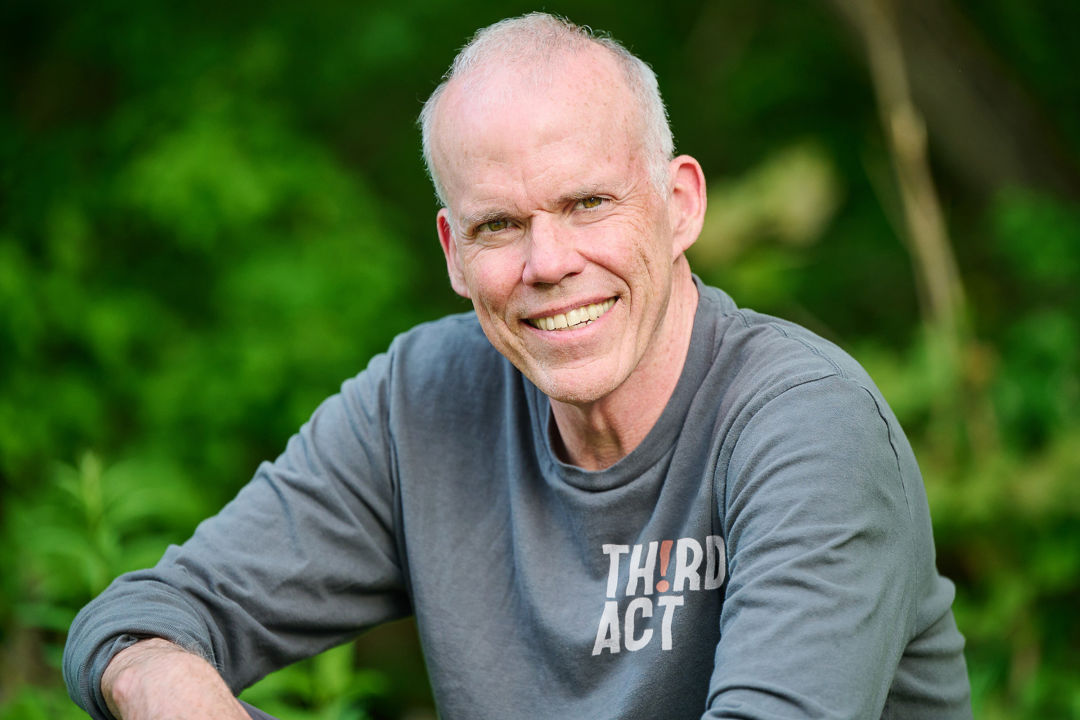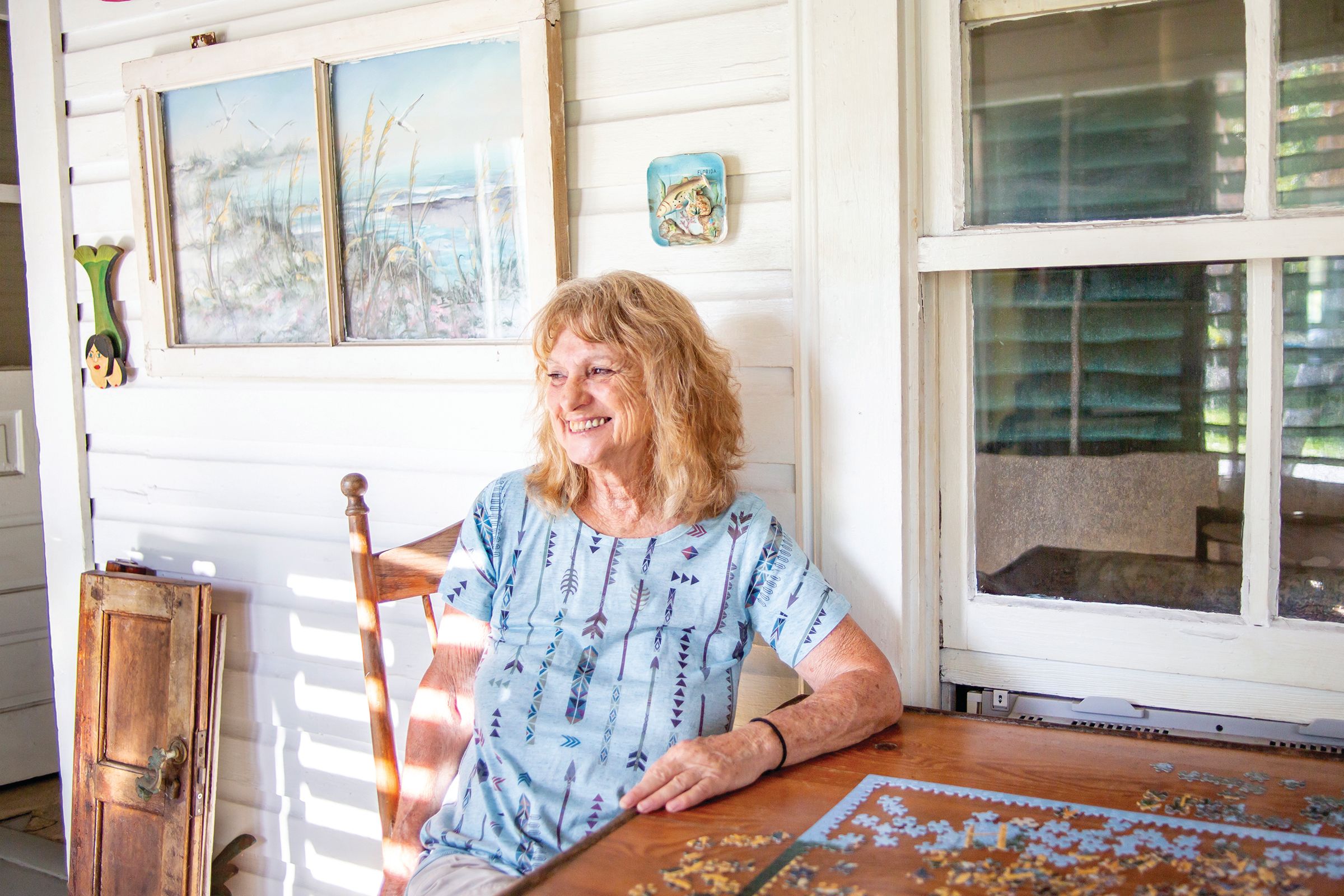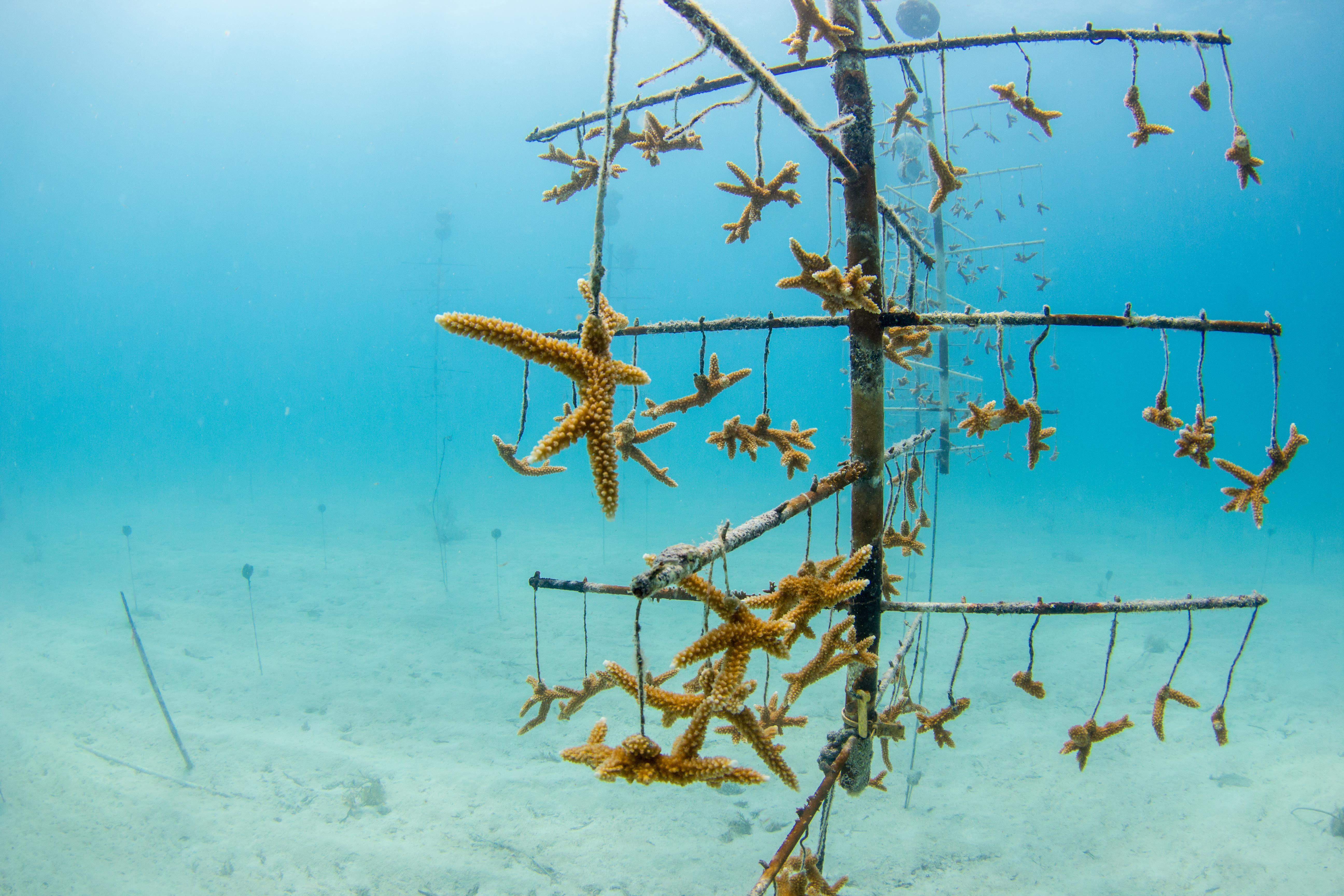A New Organization Is Recruiting Florida Retirees to Fight Climate Change

Mara Vertress
Image: Jon Vertress
When Mara Vertress moved to Florida in 1987, the summers ran hot—but never like this. Over the past 36 years, she’s noticed consistently warmer weather and longer stretches of extreme heat. Summers last longer, overnight temperatures are higher and red tide, once relatively rare, is routine. In Vertress' first 17 years as a Florida resident, she recalled only a few minor storms. But in the 17 years since Hurricane Charley slammed ashore in 2004, she’s lived through Wilma (2005), Irma (2017) and Ian (2022). Ten months after Ian damaged her home, Vertress is still waiting for contractors to rebuild parts of it.
Vertress, now 69, remembers a college professor telling students like her that global warming could become a trend. That was in the early 1970s, well before the issue caught the public's attention. Around the turn of the century, Vertress saw occasional stories about the warming planet in the news. But then she noticed the changing climate in her backyard. In her native Indiana, tornado season intensified. In Fort Myers, her current home, punishingly high temperatures and severe storms continue to escalate.
“You can’t tell me something hasn’t radically changed,” Vertress says. “We have to take care of this land for our grandchildren. When I look at sweet children, I wonder whether they’re going to be able to swim in the Gulf like I did, or walk the beach at sunset and have it be clean and enjoyable.”
This year, Vertress came across Third Act, a nonprofit that organizes people older than 60 to improve the environment. The organization also focuses on voter registration, racial justice, challenging banks that finance the fossil fuel industry and protecting democracy, but it’s mostly about preserving our natural resources.
Interest has swelled nationally, with an email list of about 70,000 people, most of them retirees. Third Act's Florida chapter is launching this month, with more than 50 people from Miami to Jacksonville on the organizing committee. There are already several hundred volunteers statewide.
“Just because I’m now retired and in my 60s, why would I not be able to still have a role and a voice in doing good things for my nation?” Vertress asks. She plans to build awareness around the climate crisis through events and writing letters to lawmakers.
The evidence of a warming planet abounds, from rising sea levels to melting ice sheets to more frequent and severe hurricanes, floods and droughts. Research at the National Aeronautics and Space Administration and the Environmental Protection Agency has found that Floridians could be forced to retreat from the coast as sea levels rise, and Florida’s coral reefs bleach and die as temperatures rise. That could mean the state will lose up to $55 billion in reef-related tourism by 2100.
One prevailing narrative around climate change is that the warming planet is an enormous problem, but younger generations are responsible for facing it because they’ll be the ones left witness the worst of the crisis. There’s some truth to that. For years, we’ve relied on people like Greta Thunberg, an environmentalist who, at just 16, was Time’s Person of the Year in 2019. Many other 20- and 30-somethings are leading the charge in the climate fight.

Bill McKibben
Image: StoryWorkz
But Bill McKibben, an author and longtime climate activist, knows most of the country’s wealth and political power lies in the hands of older Americans, particularly those over age 60. That got him thinking. Tired of hearing that it’s up to the next generation to solve climate change, McKibben launched Third Act in 2021. He says Third Act’s new Florida chapter can play a key role in the climate fight.
As warming continues, Florida is expected to be one of the hardest-hit U.S. states. Miami is reckoning with how to best fend off rising sea levels, and extreme heat could disrupt the state’s tourism industry. But thanks to its low taxes and warm weather, Florida has long been a popular destination for retirees, who hold much of the country’s wealth. Therein lies an opportunity.
“Florida is kind of the world capital of older people,” McKibben, 62, says one afternoon via Zoom from his home in northern Vermont. "It’s a place feeling the effects of climate change already, and there’s been a lot of good work done on climate change by activists across the state. If anybody’s going to stand up, it’s likely to be Floridians, or former Northerners who are now Floridians. People are attracted to the state’s beauty and warmth, but people who moved there didn’t leave behind their sense that politics is about getting things done.”
McKibben himself has done plenty. In 1989, he wrote The End of Nature, the first mainstream book on climate change. He founded 350.org, a global grassroots climate campaign, and he writes for The New Yorker and pens an email newsletter called "The Crucial Years." He was the recipient of the Gandhi Peace Award and the Right Livelihood Award. Today, it is Third Act that takes up most of his time.

The cover of Bill McKibben's 2022 book, The Flag, the Cross, and the Station Wagon: A Graying American Looks Back at His Suburban Boyhood and Wonders What the Hell Happened.
Image: Courtesy Photo
McKibben knows Florida’s beauty extends beyond its award-winning beaches that draw millions of visitors each year. There’s the rich wildlife that defines Everglades National Park. There are more than 8,400 miles of coastline. And there’s the Big Bend area, the longest stretch of undeveloped coastline in the lower 48, all of which has already been feeling the effects of a warming climate.
“Florida is fantastically beautiful,” McKibben says. “But too often, politics has been ruled by people who think in very short-term ways. You can see the results of that in Florida, which is feeling the effects of climate change more than a lot of other states. Whether it’s the incredible heat in the summers, hurricanes or the rapid rise of sea levels, it’s truly profound.”
McKibben has led one of Third Act’s main projects thus far: to raise awareness that big American banks like Chase, Wells Fargo, Citibank and Bank of America are the biggest investors in fossil fuel projects, according to a 2022 report by the Rainforest Action Network and other environmental groups. According to the report, those four banks invested more than $1 trillion in oil and gas between 2016 and 2021.
McKibben urges Americans to think collectively rather than individually. “We’ve damaged this planet a lot, but it’s still an incredibly beautiful place,” McKibben says. “One of our jobs is to pay witness to that. I have in my mind’s eye all those Floridians down there, walking the beach in the morning before it gets too hot. Or just looking up at that beautiful blue Florida sky.”
Volunteers in Florida have been busy sketching out plans for Third Act. One of the state’s chapter leaders is Bob Norberg of Gainesville, who says Floridians “should be doing everything we can to slow this environmental disaster we’re headed for.” He adds, “We probably won’t benefit from our work today, but our society hopefully will."
Scott Lewis, 71, of Pembroke Pines, read about McKibben’s work a few years ago, prompting him to rally in front of a BlackRock office to draw attention to how large banks and asset managers have poured billions into the fossil fuel industry. Like many Floridians, he appreciates the state’s beauty, but worries about its warming climate.
Thomas Caffey, another volunteer with Third Act, can feel the heat, too. He sees summers getting hotter, watches storms intensifying and fears sea level rise. More than a decade ago, he installed solar panels on his roof. Now 70, Caffey channels his distress into something actionable: He writes letters to local newspapers.
“Climate change is not really my problem, but I see this as a responsibility,” Caffey says. “I’m thinking about the future for the next generation. My generation has economic might, so it’s time we take climate change seriously.”



